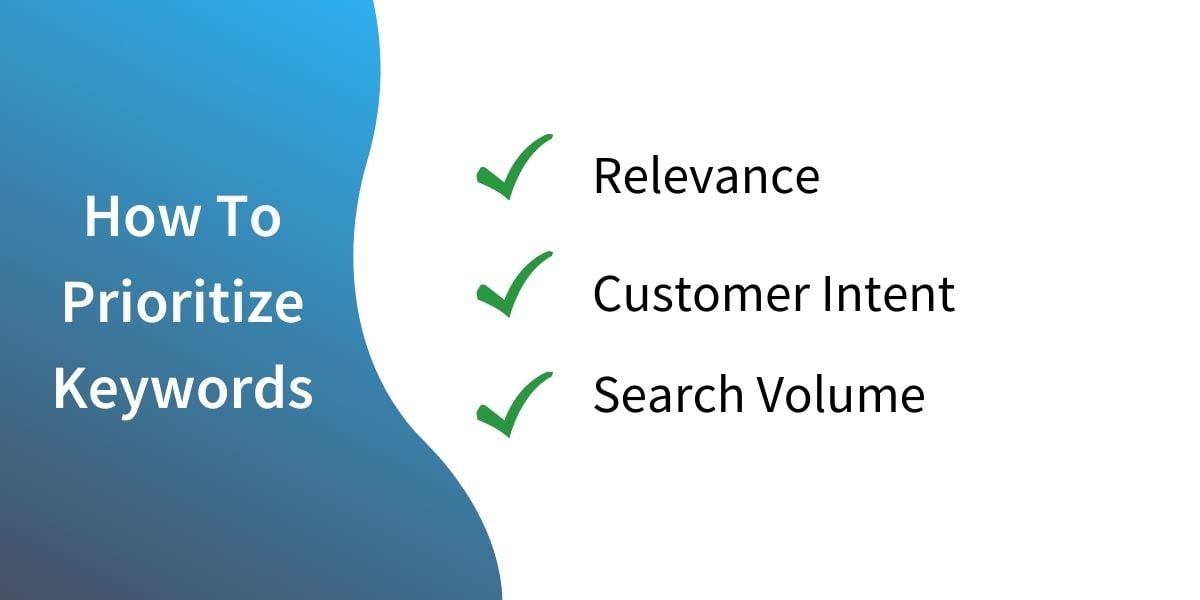How to Choose Keywords for SEO
July 7, 2020 •DJ Team

Choosing the best keywords for a website can be a little like choosing an outfit for a big event. You generally know what you need to cover, but the details will either make you stand out and shine or fade into the background. Keyword results coming out of a keyword planner can supply your closet with options. But, how do you choose the right, tailored fit that will help your website claim the top search ranking and get your content in front of audiences who need it?
The answer is thinking from the perspective of the audience you want to attract. Just like you might choose one shirt for an important business meeting, but another for a night on the town, the best keywords for you depend on the impression and message you want to get across. Here are some questions and answers about how to choose keywords for SEO that will make your site rank and your content the best on the web.
How Do I Find the Best Keywords?
You can’t rank well in search engines without finding the right keywords first. You can identify keywords using free or paid search tools online. But what do you type in to get started?
Consider what is missing from content your competitors have created on the topic and where you can fill in the gaps.Think first about what you offer to your audience—what are they looking for when they find you?
For instance, you might want people to find you when they search for “web developer,” but putting this into a keyword planner is going to give you back lots of options that are the equivalent of a basic white shirt. There’s nothing wrong with them, but they might not help you stand out. With terms like “web developer” that are very broad, there are lots of people out on the Internet trying to rank for the same keyword you are.
Now it’s time for your unique personality and approach to your business to enter the equation . Maybe you’re a “modern web developer” or a “web developer for mobile.” Maybe you’re a “web developer in Indianapolis” or “web developer for nonprofits.” Adding specifics to the keywords, like your approach to business, your location, and your ideal projects, will help you pinpoint more specific customers. Yes, this might limit your audience as well, just like wearing some flashy shoes might cause some people to write you off. But then again, you may end up attracting the ideal viewer.

What Are the Most Popular Keywords?
Many keyword planners provide information like how many searches per month are conducted for each keyword. With DemandJump, your results are ranked in order of priority, and you’ll see what keywords your competitors are using too.
But just because a keyword is popular doesn’t mean it’s right for you. In fact, this can end up a lot like that awkward feeling when you show up to a party and someone else is wearing the exact same ensemble. Unless you intend to put a big budget behind paying to rank for the most popular keywords, you should answer this question with a little more strategy than just choosing what’s popular.
This is where understanding your customer journey can help you figure out what the most effective keywords will be. Recent reports show that video, social media posts, and news articles are the top content that keeps audience attention the longest, while long-form content and blogs are something readers skim.
Voice search is also growing in popularity, versus typing a query into a search engine. This means the most popular keywords of the future are likely to be more natural phrases and questions. That’s why we designed our platform to pull in the most-searched questions alongside keywords and provide an eagle-eye view of both at once.

What Keywords Should I Use for SEO?
People are searching for content that answers their questions, and at first, those may only somewhat relate to your brand. To return to our earlier example, some of your ideal customers, if you’re a web developer, may not even know they need one yet. Maybe they start out by looking for web templates, or trying to figure out how to build their own website. Over time, your content attracts their attention and convinces them instead, they should ask you for help.
This rosy scenario illustrates why it’s important to choose a mix of short and long keywords, and keep optimizing your focus over time to catch the attention of people who need to know about your business. Remember, keep the focus on what they need.
The short one-word or two-word phrases about your offerings or industry (known as short-tail keywords) may have higher search volume, but those searches don’t necessarily mean the audience made a purchase. Lots of people are just doing research and trying to learn.
Keywords that include specific information about your products, services, or geographic location should therefore be part of your strategy. “Socially responsible web developer,” “web developer for small business,” or “web developer in the Midwest” might not have as many searches, but they will say more about what unique value you offer to customers, and what you have to teach. You might wonder how many keywords to choose--there’s not a concrete answer. If your product appeals to a small niche audience (like a web developer in certain languages or environment) keyword diversity may not be so important. But when it comes to bigger concepts (like a web developer for a small business), having a few variations of the keyword to prioritize may make your list longer. That’s especially true for content like a blog or webpage.
Over your entire website, you might have a list of high-value short keywords you are trying to rank for most. These can be included in your URLs, page titles, and headlines. Ultimately, just don’t forget to have short and long keywords, and monitor your ranking where you are trying to improve to see what works.
Find Top Keywords for SEO By Staying True to Your Brand
So, what are the best keywords? The ones that actually tell readers why your business is special. Just like rocking your own personal style, it’s important to proceed with confidence—and to accept feedback. If you think a certain keyword is going to work for you, it’s important to follow up and make sure your web ranking is actually improving thanks to the effort.
With the DemandJump platform, you can keep iterating and fine-tune an SEO strategy that promotes relevant content and attracts the audiences you want, when it matters the most. Register for free and take the indecision out of your SEO planning.
Featured Articles
Categories
- Attribution Tracking (13)
- Channel Optimization (11)
- Consumer Insights (68)
- Content Marketing (251)
- Data Science (8)
- Digital Marketing (6)
- Digital Transformation (26)
- Enterprise (10)
- Lead Generation (14)
- Market Intelligence (8)
- Marketing Analytics (39)
- Marketing Attribution (57)
- Marketing Management (153)
- Marketing Operations (86)
- Organic Search (222)
- Paid Search (52)
- Pillar-Based Marketing (63)
- Programmatic Advertising (9)
- SaaS Content (14)
- SaaS Marketing (29)
- Search Marketing (111)
- SEO Keyword Research (28)
- SEO Pillar (18)
- SEO Strategy (46)
- SMB (5)
- Website Content (12)


